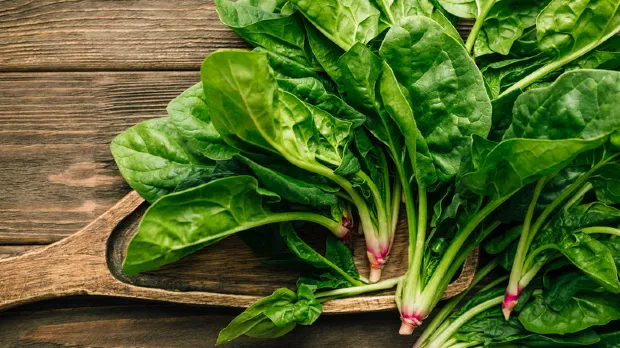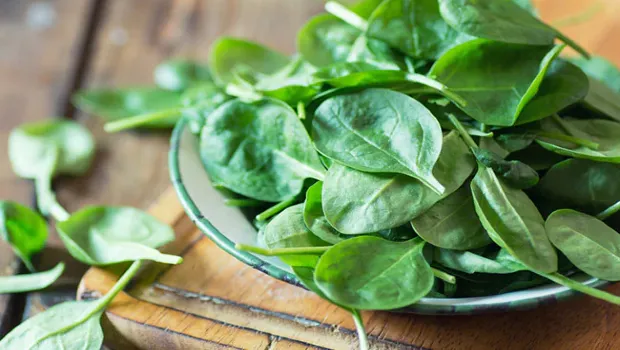Spinach Benefits, Store, Season
Spinach Nutrition

| Spinach (100g) Nutrition | |||
| Carbohydrate | Protein | Fat | Calories |
| 3.6g | 3g | 0.4g | 24kcal |
| Main Nutrition | Vitamin A, beta-carotene | ||
| Main Benefits | Prevents anemia and heart disease, promotes vision health | ||
| Side Effects | Do not consume if you have kidney stones or are taking blood thinners. | ||
Spinach is an annual or biennial vegetable whose season is winter. Spinach that grows slowly and repeatedly freezes and thaws in the winter is the best. This is because spinach increases the sugar content of the leaves to prevent them from freezing, resulting in better quality. Spinach is rich in fiber, most of which is insoluble fiber, which helps your health in a variety of ways.
Spinach Benefits

1. Eye Health
Spinach is rich in lutein, beta-carotene, and vitamin A, which are widely known as nutrients that are good for your eyes. These nutrients help improve vision and reduce the chance of macular degeneration, a condition that causes blurred vision, and are also effective in preventing night blindness and cataracts.
2. Heart health
Spinach is rich in an element called nitrate. This ingredient helps improve blood flow and blood pressure by relaxing blood vessels. This is effective in preventing cardiovascular diseases such as heart attack and arteriosclerosis. Spinach also contains potassium, which helps excrete toxins and sodium from the blood vessels.
3. Prevention of anemia
Spinach is rich in folic acid and iron. This helps prevent pernicious anemia. Iron is a substance necessary for the formation of hemoglobin in red blood cells, and is also said to be involved in neurotransmitter and collagen synthesis. Therefore, frequent consumption of spinach helps prevent iron deficiency anemia.
4. Weight management
Spinach is a low-calorie food. Spinach also contains a component called thylakoid, which affects intestinal hormones and slows digestion, thereby preventing overeating. Additionally, a component called cholecystokinin plays a role in causing a feeling of fullness in the brain and suppressing appetite, making it effective in weight management.
5. Enhancement of immunity
Rich in vitamins and beta-carotene, it has a very beneficial effect on strengthening the body’s immunity. You can create a lot of beneficial bacteria in your intestines, which can improve your body’s immunity.
Blanching
- Add 1 teaspoon of salt to boiling water and add the cleaned spinach, stem part first.
- Take out the blanched spinach and immediately soak it in cold water.
- Squeeze out the water from the rinsed spinach and use it in cooking.
Storage Method
Trim only the ends of the spinach and separate the stems into 3 to 4 pieces. You can soak the spinach in water several times to remove dirt and foreign substances, and lightly blanch the cleaned spinach before storing it.
Refrigerate: If eating within 2 to 3 days, place root side down in an airtight container and refrigerate.
Frozen storage: If storing for more than a week, divide into portions and freeze.
Side Effect
- Be careful because it contains oxalic acid, which can cause stones in the kidneys and bladder if consumed excessively over a long period of time.
- It is safe for people taking blood thinners to consult their doctor before consuming large amounts of spinach, as it may interfere with the action of the blood thinners and cause problems (blood clotting).
- Patients with renal failure may have high potassium levels in the blood, so they should limit their potassium intake. Spinach has a high potassium content, so it may have a negative effect on patients with renal failure.
References
💠TauSAUDE: 11 Benefits of Spinach
💠Health.com: 6 Health Benefits of Spinach